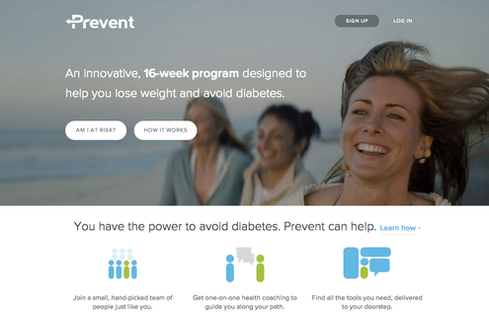Doctors & EHR: Can This Shotgun Marriage Be Saved?
Lots of doctors hate EHR software. What makes the difference for those who are happier with it?


8 Healthcare Startups Catch Fire
8 Healthcare Startups Catch Fire (Click image for larger view and for slideshow.)
There are many things about healthcare IT that I would like to understand or understand better. One of the most basic revolves around happiness and unhappiness, love and hate.
When I wrote a column on Why Doctors Hate EHR Software, I knew that was a gross oversimplification but hoped it would start a discussion. And it has. Most of the discussion it prompted from vendors was about how their product is different, and I don't doubt that physician satisfaction is different from one software package to the next. Reactions to the software can also be much different from one doctor to the next. Even where doctors hate the software with a true blue-hot passion, they may be working side by side with others who grumble about the software's quirks and cope, and yet others who think it's just fine.
Here are some of my lingering questions. I'm not pretending to make this a formal survey, but I'd like your feedback.
1. Who are the happiest electronic health record users?
Who are the people who accept the software for what it is and get the most value out of it? Is there a specialty or a personality type they have in common?
2. Do doctors just like to complain?
Some people like to complain. Maybe complaining makes them happy. I can think of writers and editors who fall into that category. Do doctors just like to complain? Their job is admittedly stressful, so they don't need software to give them any extra grief. But are they just extraordinarily difficult to make happy about anything?
If so, the software developers who manage to make them happy, even occasionally, deserve an extra pat on the back.
[Would Google + CliffsNotes equal happy doctors? See Can This Search Tool Make Doctors Love EHR?]
3. Do younger doctors have a different experience?
One common assumption is that it's the old, grumpy doctors who are least happy with the software. Is that really true? It reminds me of the meme that says all young people are social-media savvy, which is not necessarily true. Besides, those younger docs who are digital natives may not find EHR software lives up to their expectations.
4. Do nurses and other medical professionals have a more positive experience?
The discussion about EHR usability often revolves around those difficult-to-please physicians. Do nurses and others on the clinical team have the same complaints (or a whole different set of them)?
5. Does choice make a difference? Or the pace of change?
One thing I have heard from several sources is that EHR satisfaction is greater when the doctors felt like it was their choice, propelled by their own requirements at their own pace -- rather than something they were rushed into adopting to meet a government mandate. Agree or disagree?
6. How often do doctors see a real, clinical payoff from tracking patient data in EHR software? In what situations is that most likely to show up?
As part of a profile of Practice Fusion and its users, I heard from Dr. Allan Treadwell, a San Francisco internist who said using the software was additional work but that he saw the benefits when he got automated alerts about potential drug interactions, for example. Those are the sorts of clinical and patient-safety benefits that have been promoted as the point of implementing health IT. How often do they materialize?
7. How often does EHR software slow down the process of delivering care without any real clinical benefit?
One of the tradeoffs of filling out a data-entry form, rather than scribbling notes in a patient's file, is the need to fill in all the required fields and check the required checkmarks. This is sometimes justified as a virtue, in that it improves consistency. But physicians complain they spend too much time recording meaningless data like "condition normal, no change" that they would never have bothered to note in a paper file.
How much of the data tracking that occurs in an EHR is superfluous?
8. Do the benefits of this software show up on the billing and claims side of the equation, or in someplace other than the day-to-day delivery of care?
Many EHRs developed as an outgrowth of billing and claims-processing systems, with the goal of getting more of the required information captured at the point of care. Data captured from EHR systems can also be invaluable for research. Is EHR software paying off for the organization, just not where doctors can see it?
9. What aspect of EHR software most cries out for improvement?
Maybe some products do a little better than others with specific features, but where would you like to see dramatic improvements?
10. How well do the Meaningful Use Stage 2 requirements line up with the greatest needs for improvement?
The next wave of requirements from the federal government places additional demands on both software vendors and healthcare organizations. Will they result in more meaningful, productive use of healthcare IT? I'd like to hear your list of requirements for truly meaningful use.
Medical data breaches seem to show up on the 6 o'clock news almost every week. If you think it wouldn't happen to you -- or the financial impact will be minor -- think again. Download the Healthcare Data Breaches Cost More Than You Think report today. (Free registration required.)
About the Author
You May Also Like






